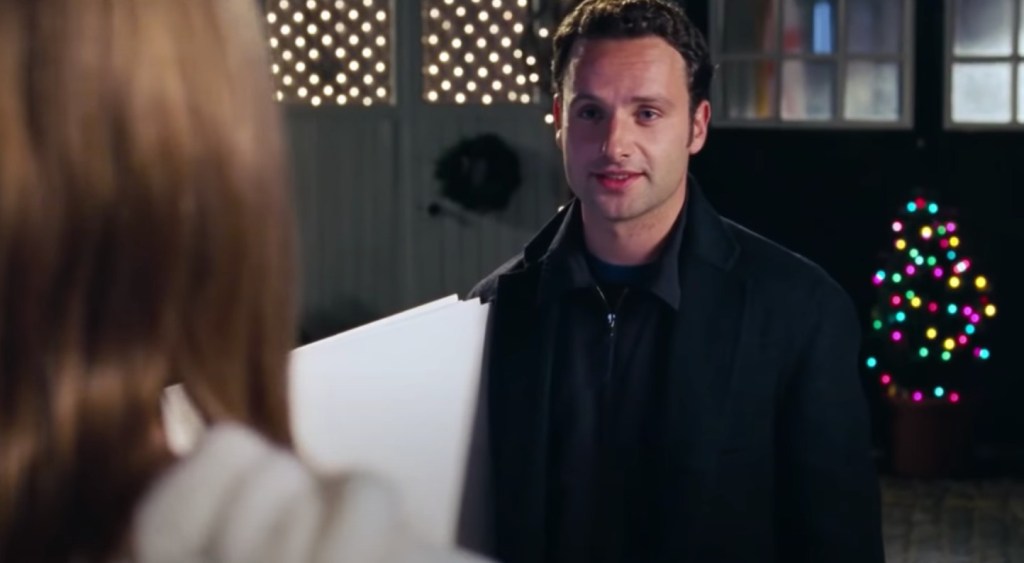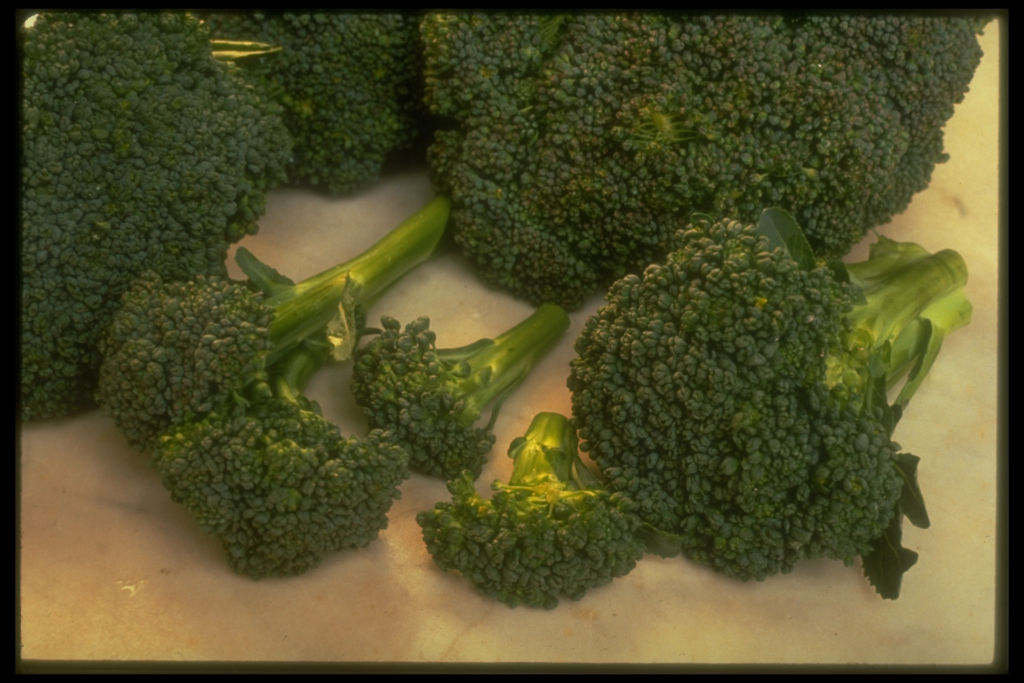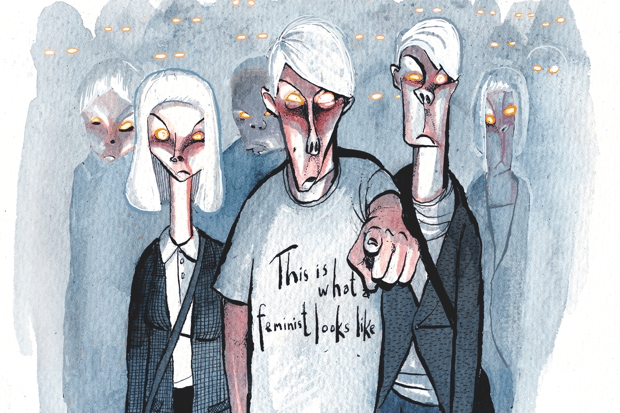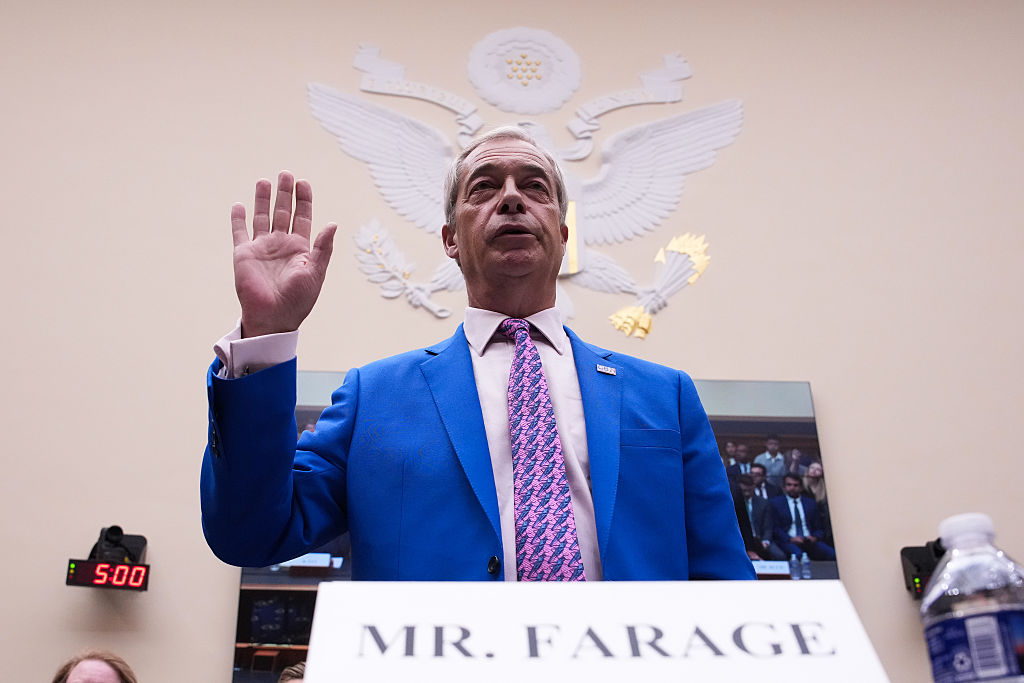A new edict has just been handed down by our woke betters. According to an article at the Huffington Post, it is now forbidden to use the (distinctly holiday) phrase “let’s work off ___,” as in “let’s go to the gym and work off those seventeen snickerdoodles and entire burlap sack of peppermint bark we ate yesterday.” Per HuffPo, such fat-shaming, “while surely intended as a lighthearted joke, is seriously problematic, according to experts.”
It’s the “according to experts” that always slays me there. And while I don’t want to pit the authorities against each other, the doctors I’ve talked to have all warned that one consequence of engorging on sweets is that eventually you do turn into a lardass. Also, why break up the tried-and-true holiday cycle of man gets fat and drunk over Christmas / man guilts himself into doing Dry January / man makes it four days before discovering another porter at the back of the fridge? Some traditions are too sacred to let even the woke mess with.
Still, the HuffPo piece reminds us of something important: Christmas is that time of year when we all come together to get pointlessly offended. ‘Tis the season to be outraged by everything, same as all the other seasons. And while not all of us are in a position to be called out by an Orangetheory instructor, there are still plenty of ways that we can take performative umbrage this December.
An always reliable one is Baby It’s Cold Outside, the flirty carol that features a man trying to persuade a woman to stay with him rather than face the harsh elements. The duet was played for decades without issue, covered by songstresses like Ella Fitzgerald and Martina McBride, until about a decade ago when it was abruptly discovered that it was an ode to date rape and cancelled by several radio stations. Thankfully, this year, there is hope. The Netflix film Love Hard recently rewrote the song in full compliance with the laws of consent. The new version sees the male singer practically ejecting his partner out into the cold while stressing that her drink is nonalcoholic.
If the lyric “Well, maybe just a half a drink more / Slow down, that’s quite a pour” sounds more patronizing and sexist than anything Frank Loesser ever came up with, well, then, maybe you’re just brainwashed by the patriarchy. And it isn’t just Baby It’s Cold Outside. Among the other Christmas songs ripe for cancellation, according to one pointy hat over at The Tab, are “Do They Know It’s Christmas” (racist), “The Fairytale of New York” (homophobic), and “Grandma Got Run Over by a Reindeer” (okay, fair enough). Also, “Santa Baby,” because, per The Tab, “women can buy their own things” without having to sex them out of jolly old St. Nick.
Then there’s the Christmas movies. It isn’t like the rest of us haven’t noticed that Love Actually makes several weird fat cracks about the perfectly lovely Natalie. It’s just that we don’t feel compelled to tweet at the Hague every time we watch it. Yet plenty of people do, apparently, along with complaints about Love Actually‘s Mark, who is in love with Keira Knightley’s character and zooms in on her while filming her wedding. This is cruel and invasive, per the Twitter mob, which knows cruel and invasive. (Curiously, Frosty the Snowman has yet to face their wrath, perhaps because it features an actual Karen.)
One thing you learn quickly about the inclusion fanatics is that there’s no such thing as argumentum ad absurdum. Make a joke about how far they’ll go and you’ll wake up the next morning to find they’ve been there and taken the train back. So it is that, at least with the holidays, we would be wise to anticipate what lies ahead. In that spirit: Christmas trees are problematic because they’re offensive to victims of climate change. Candy canes are problematic because they’re offensive to diabetics. Stockings are problematic because they’re offensive to paraplegics. Nutcrackers are problematic because they’re offensive to eunuchs.
You roll your eyes, but this is the same grievance-industrial complex that slapped a warning label on the Muppets. And so perhaps we’re conceding too much here. Perhaps the only way to spend this month is in full-throated revolt against these people. Because the entire point of Christmas is that it doesn’t coddle you. The season is meant to be problematic, in that, for all its warmth and joy, it’s pervaded by an unsettled expectation, a sense of waiting for the mysterious that’s shrouded in dark evenings and chilled by frosty air and marked by wan candles on the Advent wreath, a partaking in ritual that’s older than oneself, that transcends immediate needs and grievances.
So it is that we should all hope to encounter something problematic this Christmas, something that moves and confounds us. Like an “outdated” song lyric. Or a babe born in straw destined to die so that the world might live.

























